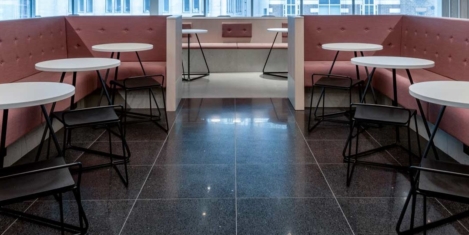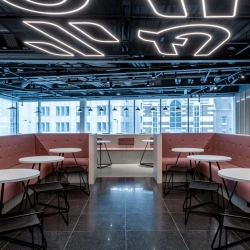To provide the best experiences, we use technologies like cookies to store and/or access device information. Consenting to these technologies will allow us to process data such as browsing behaviour or unique IDs on this site. Not consenting or withdrawing consent, may adversely affect certain features and functions.
The technical storage or access is strictly necessary for the legitimate purpose of enabling the use of a specific service explicitly requested by the subscriber or user, or for the sole purpose of carrying out the transmission of a communication over an electronic communications network.
The technical storage or access is necessary for the legitimate purpose of storing preferences that are not requested by the subscriber or user.
The technical storage or access that is used exclusively for statistical purposes.
The technical storage or access that is used exclusively for anonymous statistical purposes. Without a subpoena, voluntary compliance on the part of your Internet Service Provider, or additional records from a third party, information stored or retrieved for this purpose alone cannot usually be used to identify you.
The technical storage or access is required to create user profiles to send advertising, or to track the user on a website or across several websites for similar marketing purposes.
 As lockdown restrictions and tier systems continue to cause chaos, Direct Line Travel Insurance claims 16 million UK workers still have unused annual leave as we near the end of 2020. With many unsure what to use holiday for as they are unable to go away or socialise with people, more than 19 million days of annual leave look set to be lost by UK employees. (more…)
As lockdown restrictions and tier systems continue to cause chaos, Direct Line Travel Insurance claims 16 million UK workers still have unused annual leave as we near the end of 2020. With many unsure what to use holiday for as they are unable to go away or socialise with people, more than 19 million days of annual leave look set to be lost by UK employees. (more…)






 A December 2020 online study of 1,136 employed U.S. adults carried out by wellbeing provider
A December 2020 online study of 1,136 employed U.S. adults carried out by wellbeing provider 
 Statistics released from payroll and HR company
Statistics released from payroll and HR company 


 Heightened anxiety during the Covid-19 pandemic has led to employees working longer hours and taking fewer sick days, all the while becoming less fulfilled by work and life, according to the latest analysis from
Heightened anxiety during the Covid-19 pandemic has led to employees working longer hours and taking fewer sick days, all the while becoming less fulfilled by work and life, according to the latest analysis from 
 A new workplace heating solution that delivers targeted, gentle heat to desk-based workers is enabling building managers to reduce ambient temperatures by 2-3 degrees Celsius. The LAVA DESK 2.0 under-desk heater, manufactured from high-quality components in Austria by Etherma – and available exclusively in the UK from
A new workplace heating solution that delivers targeted, gentle heat to desk-based workers is enabling building managers to reduce ambient temperatures by 2-3 degrees Celsius. The LAVA DESK 2.0 under-desk heater, manufactured from high-quality components in Austria by Etherma – and available exclusively in the UK from 
 Almost half of UK businesses have seen an employee move on because their mental health wasn’t being looked after, with a quarter losing a key member of their workforce, according to new
Almost half of UK businesses have seen an employee move on because their mental health wasn’t being looked after, with a quarter losing a key member of their workforce, according to new 


 When Donald Trump was
When Donald Trump was 
 In the face of the revolutionary and long-lasting changes to workplaces across the world resulting from the pandemic, some commentators have suggested that the wide-spread necessity of adopting remote working practices may have made the office obsolete. However, such a dramatic upheaval to the very foundation of the workplace and working dynamic won’t come without a cost, and new data suggests that perhaps the office isn’t the dinosaur many assumed, but still a central pillar to effective businesses as part of a hybrid working strategy.
In the face of the revolutionary and long-lasting changes to workplaces across the world resulting from the pandemic, some commentators have suggested that the wide-spread necessity of adopting remote working practices may have made the office obsolete. However, such a dramatic upheaval to the very foundation of the workplace and working dynamic won’t come without a cost, and new data suggests that perhaps the office isn’t the dinosaur many assumed, but still a central pillar to effective businesses as part of a hybrid working strategy. 
 There’s no question what has occupied the majority of attention for risk managers during 2020. But
There’s no question what has occupied the majority of attention for risk managers during 2020. But 







December 11, 2020
Firms should be aware of the legal implications of employee monitoring
by James Castro-Edwards • Comment, Flexible working, Technology, Workplace